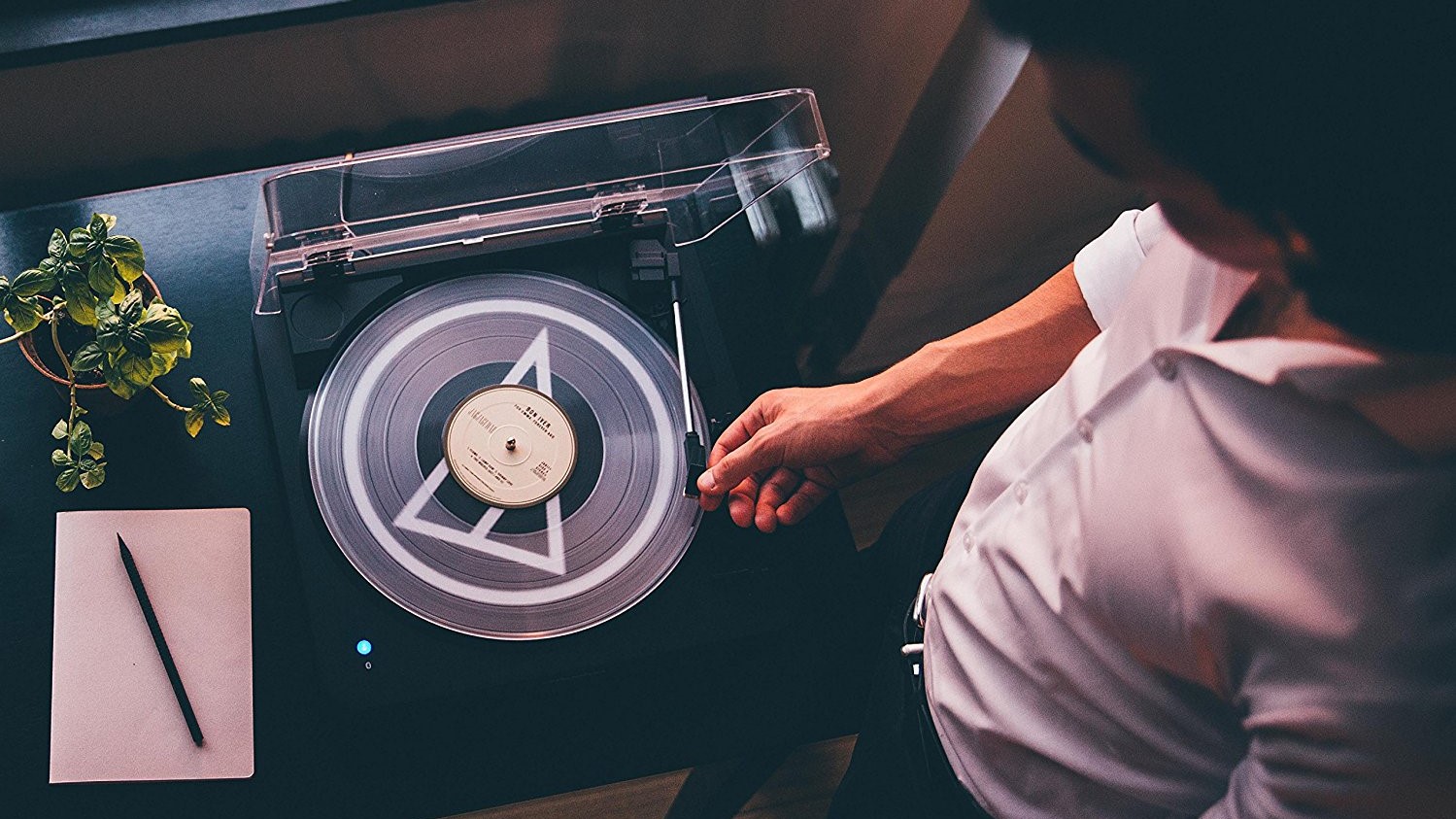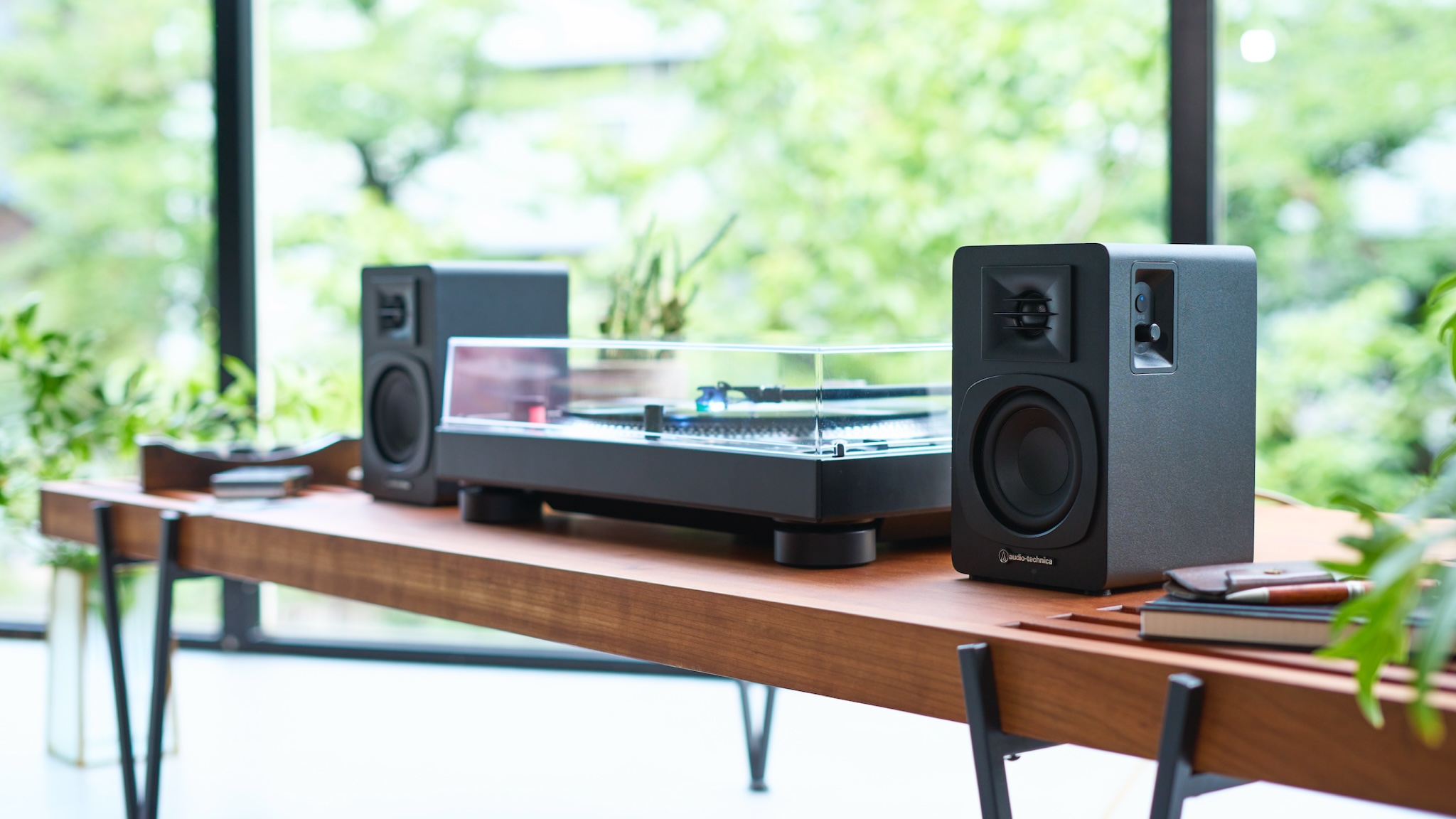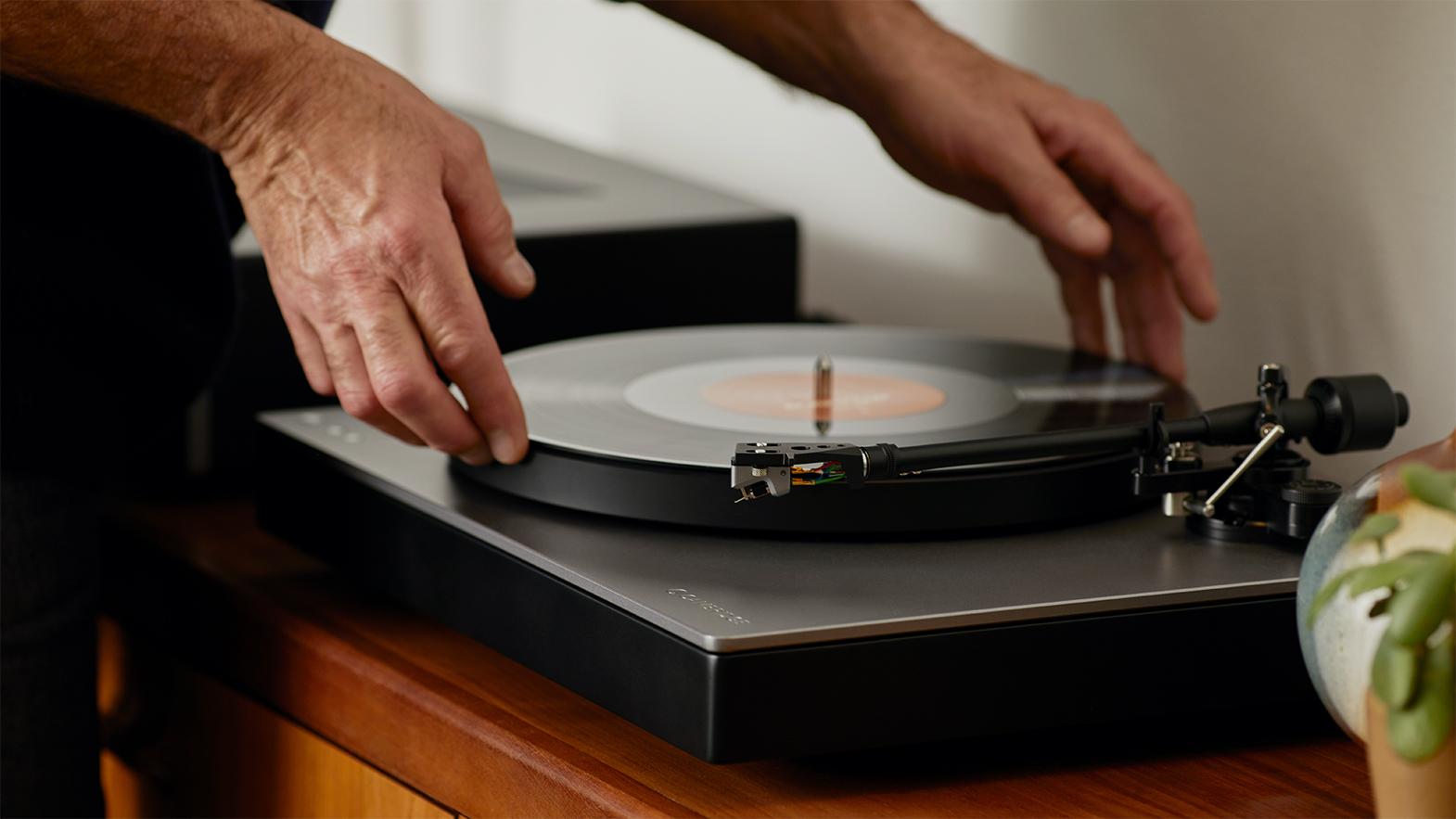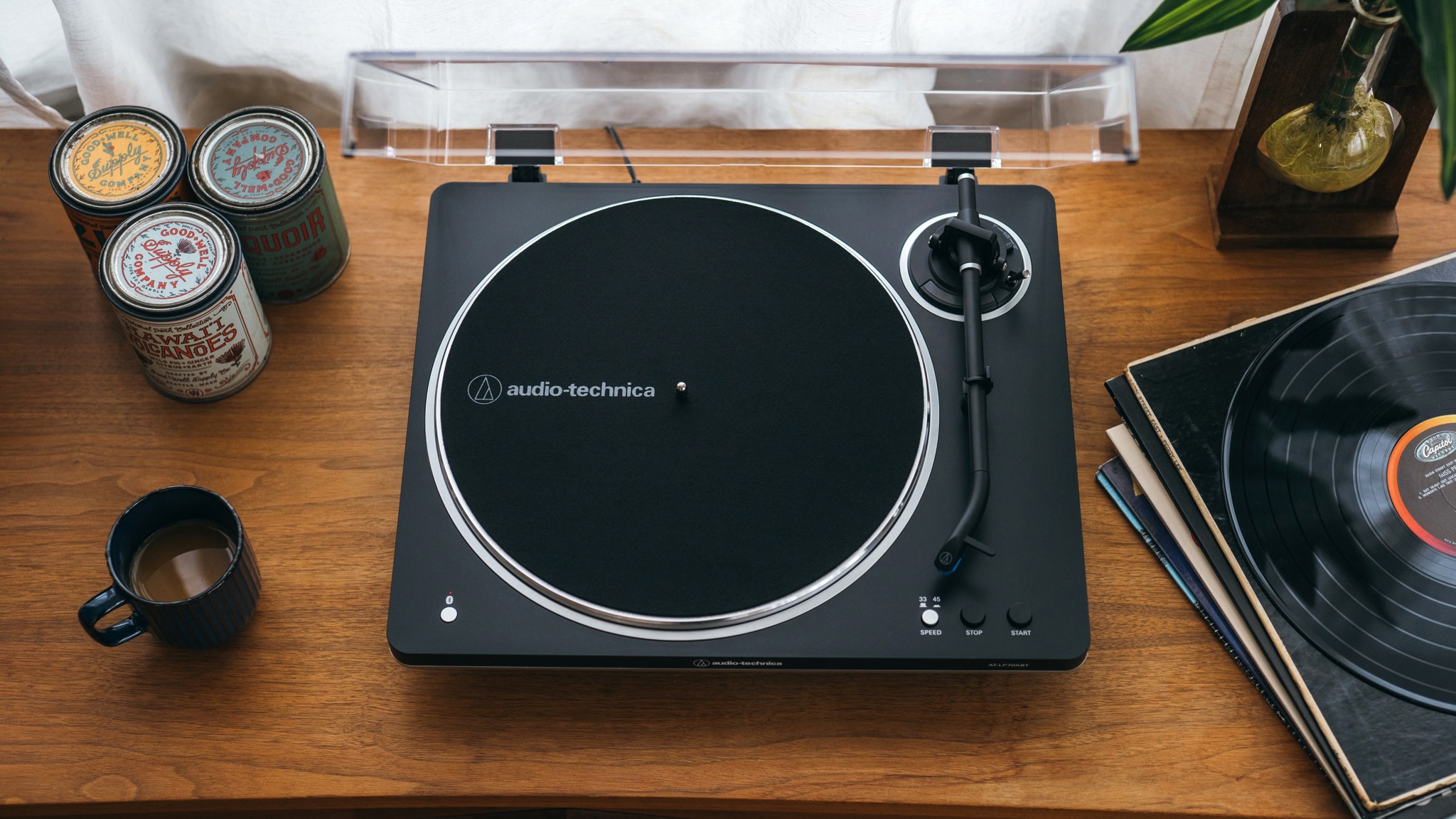
Bluetooth turntables have been getting more and more common over the last few years, so you might be wondering if it's a good idea to buy one. For a very long time, there have been two kinds of turntable. The first kind is the all-in-one, the record player that comes in a single unit that also contains an amplifier and speakers. And the second, much more common kind is the turntable you connect to other hi-fi hardware.
Until very recently that connection was made with a wire, but a growing number of manufacturers now offer wireless turntables that connect over Bluetooth, or adapters that enable you to make a wired turntable into a Bluetooth one – and several of the best turntables offer this option.
That opens up some interesting possibilities. Getting rid of wires is always appealing – I've just moved home and put off setting up my audio gear for ages because I was in no hurry to spend hours running cables over, under and through things – but Bluetooth turntables can also stream directly to the best Bluetooth speakers or the best wireless headphones. But is that a good idea, or is cable still the conqueror of connections? Let's find out.
Bluetooth vs wired turntables: what's the difference?
All turntables work in the same way: the record spins and a stylus follows the patterns in its grooves, turning those patterns into an electrical signal. But what happens to that signal differs between wired and Bluetooth turntables. With a traditional wired turntable, the signal is sent to the audio outputs of the turntable, which are in turn connected to a phono stage to boost the signal, and then to an amplifier. The amplifier then increases the signal strength further and sends it to your speakers or headphones.
With a Bluetooth turntable, the audio signal is passed on to a Bluetooth transmitter, which broadcasts the signal to another Bluetooth device. And doing that means it needs to process the signal, which we'll look at in more detail shortly.

Bluetooth vs wired turntables: convenience
On the face of it, Bluetooth is vastly more convenient: no cables! Smart speakers! But in order for Bluetooth to work, you need to "pair" your devices – which is when the device that's transmitting says hello to the device that's going to be receiving. And while that should work effortlessly and flawlessly, it doesn't always: if you have a particular Bluetooth speaker or headphones in mind, it's wise to Google whether there are any pairing issues with your potential new turntable, because there can be annoying and often mysterious incompatibilities. Pairing can also be annoying if you have multiple Bluetooth devices in the same room, or a regular irritation if you also use your speakers or headphones with other audio sources.
Another issue with Bluetooth, one that you may have encountered with headphones or earbuds, is sometimes the signal stutters or drops altogether. That doesn't happen with wires but it can happen even with quite expensive Bluetooth turntables, since there's the potential for intereference.
Bluetooth vs wired turntables: cost
Although adding Bluetooth to a turntable means more components and complexity that doesn't necessarily translate to a higher-priced turntable: you can get very cheap Bluetooth turntables as well as frighteningly expensive ones.
But with all other components being equal, a Bluetooth turntable will be slightly more expensive – and the better the circuitry, the more expensive it's likely to be.

Bluetooth vs wired turntables: sound
I've left the biggest one till last, because it's the most important one for some listeners. Bluetooth can't deliver music without losing some of the information that's on the original record.
Does that matter? That very much depends on your hardware and your priorities. If you're not listening on high-end hardware, or if you don't mind sacrificing a little sound quality for a lot of convenience, then it doesn't matter at all. And the differences are small unless you've got really good hearing and really good hardware too.
But nevertheless it's true that there is a trade-off between wireless convenience and sound quality. There are two reasons for that. The first is that your turntable's signal is analog, but Bluetooth's is digital. I'm absolutely not going to get dragged down into the analog vs digital argument that's been raging for decades now, but many people believe analog sounds better – or, at least, preferable.
The second reason is more objective: Bluetooth is lossy, which means that some of the original musical information is removed before the audio reaches your ears. That's because there is a limit to how much data Bluetooth can stream, so when the original audio signal is converted, it is also compressed to make it fit the available bandwidth.
The tool that decides what to keep and what to cut is called a codec, which is short for encoder/decoder. And the codec your turntable and speakers or headphones support will have a big influence on what you hear. That's because while all the main codecs convert and compress the audio information, some of them do it more efficiently and more pleasingly than others.
This topic can get very technical and very dull very quickly, so here's the key information: SBC is the most widely supported codec and sounds pretty good (it's the standard for Bluetooth headphones) but isn't as good as more recent codecs; aptX is better, and aptX HD and aptX Adaptive are better still but aren't so widely supported. If you're into Sony kit it's likely to support LDAC, Sony's own codec, which is a good alternative to aptX if your hardware supports it.

Bluetooth vs wired turntables: which should you buy?
If convenience is your priority, or you want to listen on Bluetooth headphones, then Bluetooth is likely to make you happiest. If you're serious about sound quality, wired will usually be better. But why choose at all?
If you're starting from scratch you don't have to pick one or the other: you can get a turntable that offers the best of the wired and wireless worlds, and there are great options at most price points.
For example our current best budget buy, the Audio-Technica AT-LP60XBT (and there's a new version, called the Audio-Technica AT-LP70XBT) – has Bluetooth with aptX as well as wired connections for an amp (including its own phono stage, which you can switch off if you don't need it). It's a similar story with many more premium turntables (such as the Cambridge Audio Alva TT v2) where you'll typically pay a little more for wireless connectivity but you benefit from more playback options.







